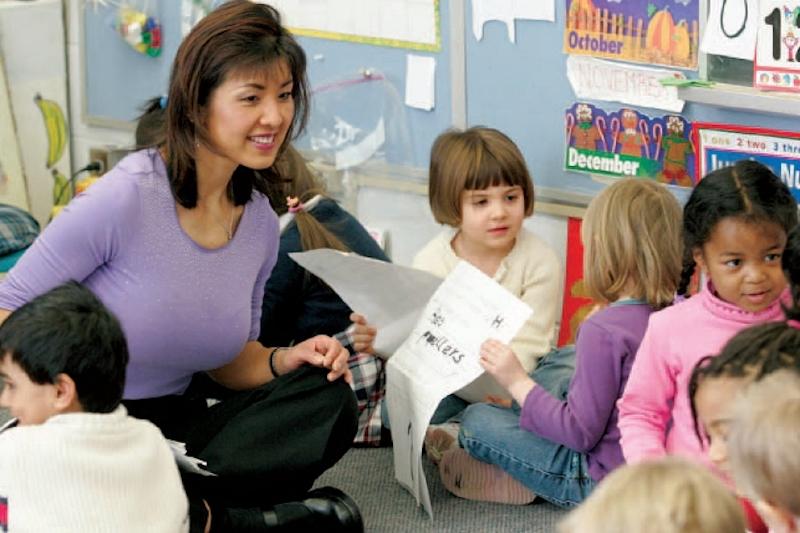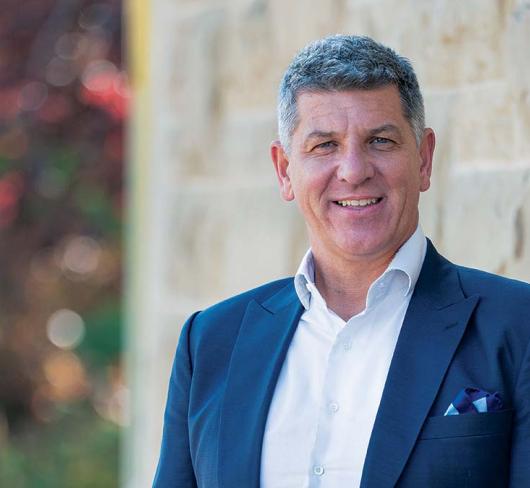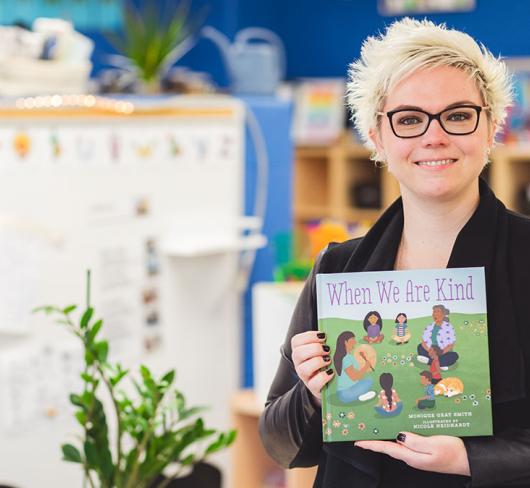
Taking Time To Learn: Learning and Doing Together
A mid-career teacher updates her knowledge.
Junior kindergarten is a different world from any other grade. When I first started teaching at the junior kindergarten level nine years ago, I was shocked both by the demands of welcoming all these children attending school for the first time and by my own personal reactions to this new level. Having taught over half of the previous 10 years at the Junior level, I was really struggling to figure out my new role. My first year in junior kindergarten included physical injuries, such as being bitten on my face by a panic-stricken child who had never been left anywhere without mommy!
This memory was swirling in my head as I was signing in last year during the first day at the ETFO’s Kindergarten Summer Institute: Learning and Doing Together. I kept thinking that if I had been able to experience this institute years ago, it would have made a great difference in helping to propel me into my new way of thinking about my role as a teacher.
I first learned about the Summer Institute from a posting on our school board’s kindergarten curriculum online conference. Year after year, I have seen interesting conferences advertised, but because they were out of town during the school week, and/or because they conflicted with my responsibilities to my own family, I was unable to attend. It was very frustrating not to be able to pursue these opportunities. When I saw that the 2006 Summer Institute was going to be held in Ottawa, and that it was only $25, I made it my first planned activity for the summer! I was excited about attending for several reasons. I enjoy both connecting with former colleagues and making new connections. I was also very interested in hearing how the ministry’s newly revised (2006) Kindergarten Program document was going to be presented.
So often I have connected via board email with another kindergarten teacher, shared ideas, resources and encouragement, and hoped to some day meet her or him in person. The institute gave me a chance to meet up with a few “new but old” friends, and I finally got to put faces to the wonderful souls I had come to know through email. They all brought with them different experiences and lots of excitement.
At the institute sessions, we heard new information and were reminded of key points related to child development, such as that children’s early oral language skills have a long-term impact on so many other literacy skills, as well as on physical aggression and antisocial behaviour. As a result of attending the Summer Institute, I have lengthened times for oral language development and demonstrations using real-life scenarios, in my classroom. The students are now coming up with their own extension ideas that they want to incorporate into activity centres.
I found it most interesting to note the reactions and body language of my colleagues as we heard about the importance of the critical period in the development of oral language. People were sitting taller. I heard a few people comment that this reminded them about how important our role as “facilitators of destiny” is! A key quote I particularly liked and that has stayed in my mind is this: “Children and playdough are alike, in that you can not interact with them without leaving an impression.”
Over the course of the three days, I made many new connections. New teachers were all abuzz with the excitement of wanting to try out their newly acquired ideas. Some experienced teachers were able to confirm that they were, in fact, right on track. An interesting article about change1 provided food for thought, and it gave me ideas about how to approach people when we make changes to what we do and how we do it. I have used the information from that article for self-reflection and as a tool when I deal with others in the capacity of leader or mentor.
Some sessions were jam-packed with ideas I could use in my classroom. There were great new ideas for new teachers and familiar ideas were presented with a slightly different slant or approach. All of them expanded my To Do list – and the shopping list for my next trip to the dollar store!
The session on assessment reconfirmed the need to plan and record authentic assessment opportunities by observing children as they demonstrate what they know and what they can do. If observations show that children have not acquired or cannot demonstrate skills and/or information, then we need to teach again and give a variety of opportunities for them to demonstrate their learning. A memorable quote from that session: “You can not fatten a pig by weighing it.” During this session I developed a new slogan, “Assess for Success!”
I have a wand that I use to give high-fives to students when they are “caught” doing something nice, solving problems on their own, or taking initiative. I also use it when I am welcoming them in or sending them home after a great day in class. The “wand” is actually a fly swatter, with a small flip flop sandal on the end and an electronic voice box. When I wave it, it says, “Gotcha!” and shows that I recognize their moment of success. I now use it more often.
All of us, both new and experienced teachers, need more of these opportunities to learn, share, and reinforce information and ideas. Since the ETFO’s Kindergarten Institute, I have maintained contact with a few teachers in other schools and have mentored them informally. I have gained from sharing with others. At our followup workshop in April 2007, those of us who met last year will meet again to share changes and ideas. Thank you to all those who have worked hard to help us continue to grow as facilitators of these incredible young learners! “Gotcha!” on a great job.
1 Francis M. Duffy, “ Think, Therefore Am Resistant to Change.” National Staff Development Council, Journal of Staff Development, Winter 2003 (24). Available at nsdc.org/library/publications.

